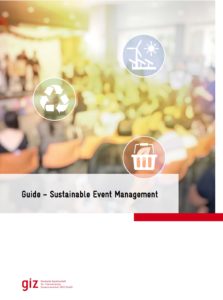
This guide introduces the topic of Sustainable Event Management and offers practical guidance, including a phase model which shows the task packages of sustainable event organisation in chronological order. This is followed by a more detailed description of the seven fields of activity. The guide also provides practice-oriented checklists, which will give a variety of references to each field of activity.







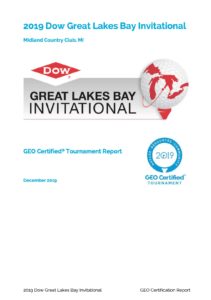
GEO concurs with the Council for Responsible Sport’s verification assessment that, having achieved 45 out of the 47 credits sought, and with Continual Improvement Points set for the future, the 2019 Dow Great Lakes Bay Invitational has earned the award of GEO Certified® Tournament status.




Environmental Handbook for Towed Water Sports
This handbook is based on an extensive literature review on the impact of water skiing, wakeboarding, and boating on the environment. Most of this handbook’s facts and findings are based on conclusions drawn from numerous papers, reports, books, and studies and can be found in the bibliography. The recommended best practices and practical steps were developed primarily by The International Water Ski & Wakeboard Federation (IWWF), with contributions made by various individuals and respected water ski and boating organizations from around the world.


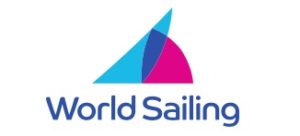
World Sailing, in partnership with the World Sailing Trust and 11th Hour Racing, have released a Sustainability Education Programme, developed with The Ocean Race, for sailing clubs and parents as part of its Agenda 2030 - sailing's commitment to global sustainability. The Sustainability Education Programme materials were developed with The Ocean Race, capitalising on the success of their own programme in the 2017-2018 edition of the race, and have been split into six topics each comprising of a booklet, trainer's guide and worksheet for age groups 6-8, 8-10 and 10-12.




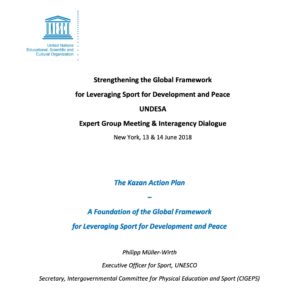
UIM Sustainable Sport and Event Toolkit
The SSET is a project inspired by the shared willingness of the UNESCO and the UIM to use the example of the Powerboating Sport for the implementation of the conclusions of the Kazan Action Plan in the field of Sport and to convert the policy declarations contained therein into measurable action. The aim of the project is to give Sports Federations and their affiliated entities in their role as event organisers the tools required to incorporate sustainability in their work and to plan and deliver sustainable events.





Sport Sustainability : Impact Assessment-Economics
This module is part of a 12 clips guide created by SportAccord, AISTS, PI, and IOC, to help us understand sustainability as a whole, and look at what it means. Economic Impact Assessment. Why measure, what it is, and how to measure it. (Video 10/12)





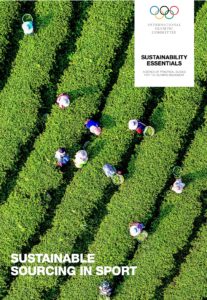
This Guide is part of the "Sustainability Essentials" series developped by the IOC. It is intended to help organisations within the Olympic Movement and the wider sports sector to adopt more sustainable sourcing practices. The choices your organisation makes in the sourcing of goods and services will be fundamental to how you address sustainability as a whole. This is because most of the direct and indirect impacts you have on the environment, people, communities and businesses will stem from how you spend your money. Every item or project ultimately has a price and has to be paid for. How you decide which goods and services you want is ultimately under your control.

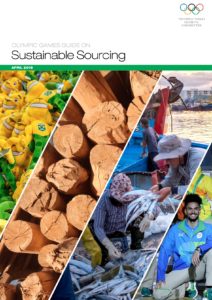
Olympic Games guide on Sustainable Sourcing
All IOC support services and material are shaped by the IOC’s “Olympic Agenda 2020” and, following the recommendations of Olympic Agenda 2020, the “New Norm”. The New Norm consists of 118 practical measures aimed at reducing the cost and complexity of the Olympic and Paralympic Games delivery model and covers the entire lifecycle of a Games edition from candidature to legacy realisation.


This is the introductory guide to the "Sustainability Essentials” series developed by the IOC. IOCaim here is to provide a general understanding of sustainability: what it means, why it is important, how it relates to sport and what a sport organisation can do to be part of this critical endeavour. IOC have compiled this general overview of sustainability as it is essential for National Olympic Committees (NOCs) and International Sports Federations (IFs) – indeed any sports organisation – to have a basic understanding of how sustainability is relevant to sport, and how to go about developing an effective sustainability programme that also leaves lasting legacies.














